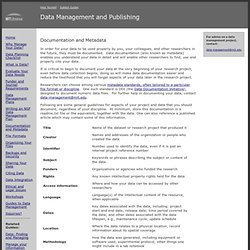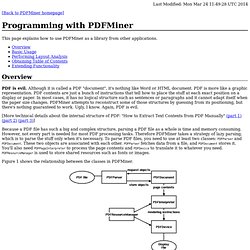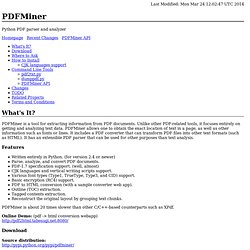

Metadata: Data Management and Publishing: Subject Guides. In order for your data to be used properly by you, your colleagues, and other researchers in the future, they must be documented.

Data documentation (also known as metadata) enables you understand your data in detail and will enable other researchers to find, use and properly cite your data. It is critical to begin to document your data at the very beginning of your research project, even before data collection begins; doing so will make data documentation easier and reduce the likelihood that you will forget aspects of your data later in the research project. Researchers can choose among various metadata standards, often tailored to a particular file format or discipline.
One such standard is DDI (the Data Documentation Initiative), designed to document numeric data files. For further help in documenting your data, contact data-management@mit.edu. Following are some general guidelines for aspects of your project and data that you should document, regardless of your discipline. Screaming Frog SEO Spider Tool & Crawler Software. About The Tool The Screaming Frog SEO Spider is a fast and advanced SEO site audit tool. It can be used to crawl both small and very large websites, where manually checking every page would be extremely labour intensive, and where you can easily miss a redirect, meta refresh or duplicate page issue. You can view, analyse and filter the crawl data as it’s gathered and updated continuously in the program’s user interface. The SEO Spider allows you to export key onsite SEO elements (URL, page title, meta description, headings etc) to a spread sheet, so it can easily be used as a base for SEO recommendations.
Check our out demo video above. Crawl 500 URLs For Free The ‘lite’ version of the tool is free to download and use. For just £149 per year you can purchase a licence, which removes the 500 URL crawl limit, allows you to save crawls, and opens up the spider’s configuration options and advanced features. FAQ & User Guide Updates. The Comprehensive R Archive Network. Refine - Google Refine, a power tool for working with messy data (formerly Freebase Gridworks)
Free Development software downloads. Programming with PDFMiner. Last Modified: Mon Mar 24 11:49:28 UTC 2014 [Back to PDFMiner homepage] This page explains how to use PDFMiner as a library from other applications.

Overview PDF is evil. Although it is called a PDF "document", it's nothing like Word or HTML document. [More technical details about the internal structure of PDF: "How to Extract Text Contents from PDF Manually" (part 1)(part 2)(part 3)] Because a PDF file has such a big and complex structure, parsing a PDF file as a whole is time and memory consuming. Figure 1 shows the relationship between the classes in PDFMiner. Figure 1. Basic Usage A typical way to parse a PDF file is the following: Performing Layout Analysis Here is a typical way to use the layout analysis function: A layout analyzer returns a LTPage object for each page in the PDF document. Figure 2. LTPage Represents an entire page. LTTextBox Represents a group of text chunks that can be contained in a rectangular area. LTTextLine LTChar LTAnno LTFigure LTImage Represents an image object. LTLine. PDFMiner. Last Modified: Mon Mar 24 12:02:47 UTC 2014 Python PDF parser and analyzer Homepage Recent Changes PDFMiner API What's It?

PDFMiner is a tool for extracting information from PDF documents. Unlike other PDF-related tools, it focuses entirely on getting and analyzing text data. Features Written entirely in Python. PDFMiner is about 20 times slower than other C/C++-based counterparts such as XPdf. Online Demo: (pdf -> html conversion webapp) Download Source distribution: